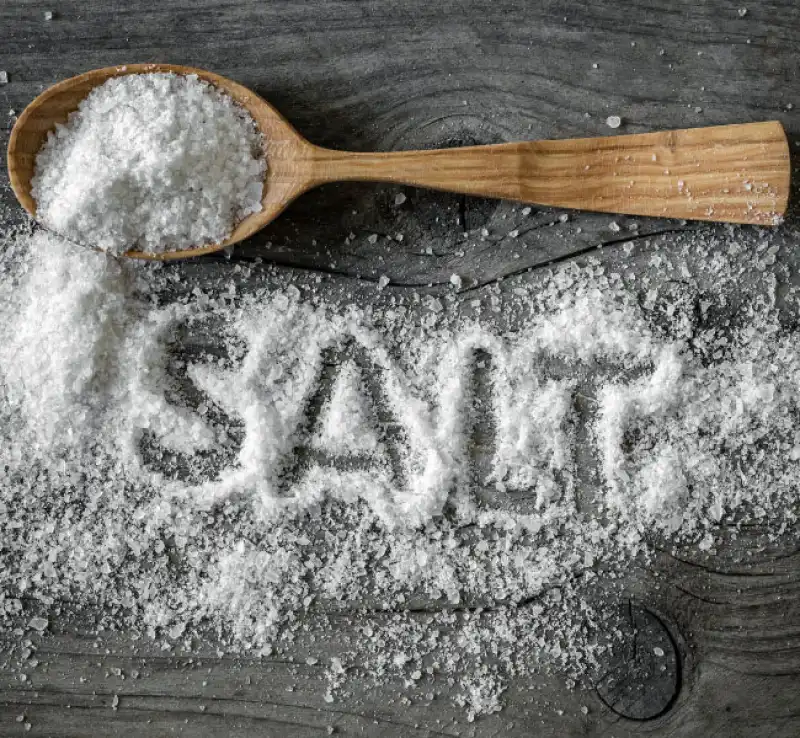
Salt Recommendations for Toddlers
26th April 2022
Salt can be a tricky topic when it comes to feeding children. Babies and young children have very low maximum recommendations for their salt intakes, but salt is found in so many of our everyday foods. Many of the foods we don’t consider to be particularly “salty” can actually be quite high in salt.
In this article, I want to share a little bit more about WHY salt isn’t recommended in high amounts for toddlers and HOW to navigate avoiding high salt intakes.
Why is salt not recommended for toddlers?
A high intake of salt over a long period of time can increase the risk of high blood pressure in adults but also in children, leading to further health complications later in life.
We know that dietary preferences and habits learned in childhood can continue into adulthood. This includes a preference for salty foods or adding salt to our foods. That’s why it’s a good idea to try to minimise the amount of salt in our little one’s diet right from an early age.
Which common foods are high in salt?
Some of the foods with the highest salt content include processed meats*, olives, cheese, stock cubes and gravy**, condiments such as ketchup and mayonnaise, marmite and smoked meats and fish. Other foods with more moderate levels of salt are shop-bought soups and sauces***, bread, hummus, pizzas and some breakfast cereals.
The best way to check the salt content is to check the label. Foods with 0.3g of salt or less per 100g are considered ‘low salt’ whilst foods with 1.5g of salt or more per 100g are considered ‘high salt.’
What are the salt recommendations for toddlers?
The table below, adapted from the British Nutrition Foundation, shows the recommended daily maximum amount for salt intake in babies and young children.
Age | Maximum Recommended Salt Intake (g/day) |
0-6 months | <1 |
6-12 months | 1 |
1-3 years | 2 |
4-6 years | 3 |
7-10 years | 5 |
11+ years | 6 |
Tips for keeping salt intake low
Use herbs and spices – just because salt isn’t recommended for children, it doesn’t mean all flavours are off the cards! Don’t be afraid to add flavour in other ways to your little one’s foods. Most herbs and spices are fine to use - some of my favourites are basil, cinnamon, cumin, paprika and oregano
Avoid adding salt to foods – wherever possible, try not to add any salt to your toddler’s foods when cooking. If you’re cooking one meal for the family, add salt to your portion at the end or keep a portion separate for your toddler without salt.
Make your own sauces – Many of the pre-prepared sauces and dips can be quite high in salt and mean you can easily go over your toddler’s daily intake. Batch cooking sauces such as tomato sauce, pesto or dips like hummus and freezing them can be a great way to have spares on hand when you need something quickly.
Check labels and ingredients – aim to include as many ‘low salt’ foods as possible – those with less than 0.3g of salt per 100g. Also check the ingredients for added salt in foods such as tinned pulses or microwave pouches of rice/grains. When buying tinned fish, opt for those tinned in water and not brine for a lower salt content.
Think about variety – varying up your little one’s meals can help to lower their salt intake. For example, switch up bread for pasta or rice or offer yoghurt instead of cheese.
Opt for ‘low salt’ options – for common foods like stock cubes, crackers, gravies or butter, often a low-salt option is available instead.
Focus on balance – mix up higher salt foods with lower salt options throughout the day/week. It’s ok if on some days your little one’s salt intake is a little higher than usual, you can balance it out with less salt on other days.
I hope this blog and my tips help when thinking about your toddler’s salt intake!
Charlotte Stirling-Reed
*Zebedees ready made meat products, such as sausages, are limited to less than once a week on our three week menu. Our sausages are made especially for us by our butcher, using our own low-salt recipe.
**Gravy granules are used less than once per week (twice on the 3-week menu)
***We do not use any ready made sauces containing added salt.
Back to Latest News